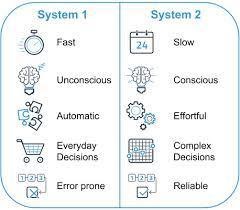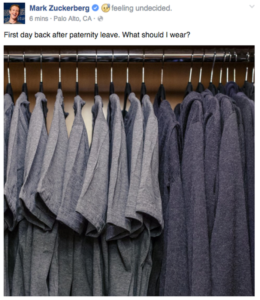In current times, everyone is busy, stressed and juggling so much. Trying to be productive is an ongoing challenge for lots of us. There are so many great articles and books on productivity and for most people, we probably know what we should be doing. So, if we know what we should do, why is it so hard for us to really feel productive?
To explain this a bit more, I want to talk about choice. Why choice? Well, I have worked on decision making theory and training for a long time and when we explore effective decision making, we want to make sure the choices we make are bias free, inclusive and considerate of all relevant perceptions. There are loads of tools to help us do this such a De Bonos 6 hats, collaborative meetings, PESTLE, SWOT, scenarios etc
Why we spend so much time on these choices is because a decision is not a decision without choice. The anatomy and make up of a decision is a choice. When we have choice, we have to spend some cognitive energy considering which choice we should select. To be more productive we need to first understand our choices and also limit choices so we do not have chance to choose options that are not going to assist with productive behaviours.
The core teaching of being productive is to schedule your time and use planners. Great tips, because if we schedule our work then we don’t spend time each day thinking, what should I do next….? The choice is already made for us. First tip, then, is: schedule your work in your diary or to-do list and work through that. This is also why people will schedule their workout first thing in the morning, and leave their workout clothes ready to put on next to their bed. Again, we are removing choice from our decision.
Yes, I hear you… you do all this but still choose to do something else. I get it. I often look at my diary entry and it states to spend time on a report, but I choose to look at social media or do something else. At this stage you need to understand your choice a little more by considering short-term gratification compared to long-term gratification. It feels so much easier to fulfil that short term gratification than to be motivated by the longer-term gratification. Going back to the workout analogy, you may be all prepared for your workout and have the kit ready to go, but it just feels better to have that extra sleep in the morning, rather than think about the long-term fitness or wellbeing goal. So, for these challenges we need to focus on the long-term gratification and keep that as a goal. If you are due to write the report and get distracted then it is important to think about the long-term gratification, such as how good you will feel that evening with the report is finished, rather than the instant gratification of responding to the email notification. We are conditioned to respond to notifications and we actually get a ‘feel good’ dopamine hit when we respond as we are feeding short-term gratification. So, the next time you see “turn off notifications” as a tip for increasing productivity, this is why. Also, reframe some of your thinking and consider the long-term gratification. Further support can be found through some reflective exercises to help assess what your longer term goals are. Put these goals up somewhere in your home to help remind you of the longer term gratification that you want to achieve.
There is a brilliant theory from Daniel Kahneman which is from his book ‘Thinking Fast and Slow’. This ‘nobel prize’ winning author also helps explain about how we can be more productive.

In ‘System 1’ thinking we are using our automatic processing. As humans we make millions, millions and millions of automatic decisions every day and these are learnt through our experiences and life and they help us get through the day. As humans we are really good at automatic decisions and thinking so we should take more advantage of this. ‘System 2’ thinking requires more deliberative conscious thought processes, and this is where we need to think about different choices, biases, perspectives etc.
This theory helps us understand why we have to automate as much as we can. I use the analogy of…’treat everything like your toothbrush…’ as in we always put our toothbrush in the same place every day so we never waste time thinking about where it is. Think about the time you spend looking for keys, wallet… or a mask! If we organise as much as we can, we can save our cognitive energy for the decisions that matter. Therefore, to be more productive, think about what decisions you can automate – which, in effect, is removing choice. Mark Zuckerberg has a great example of this. He shared this picture a few years ago of his work wardrobe.

He wears the same clothes each day… so he does not spend anytime considering the choice of what to wear. Barack Obama does the same. And so did Steve Jobs. Think about this for yourself, do you feel more organised when you have prepared breakfast or your clothes for the next day. Do you feel more productive as your day starts…. You have removed some of the choice (and what is known as decision fatigue) leaving more cognitive energy for your day. Start to reflect and consider what aspects of your day and decisions you can automate. This tip is to try and create more habits and automated processes, such as a routine, for your work, or putting work in certain files, or making sure everything in your home/office has a place.
The last thing to challenge our productivity is our own motivation. How motivated you are to work on something or to challenge your mindset is up to you. Some of these tips may help you understand how our brain works, and you may have to spend some time thinking about where you need to be more productive. If you want to read more, we have a reading list on our website with great resources on how we think and make decisions, and also some coaching cards on productivity.
At the end of the day though it is up to you to spend some time ‘reframing’ your mindset or association with your behaviours. It is your choice….!
If you are interested in finding out more information about this topic, then please contact Clare at clare@cmcbp.co.uk or on +447594946166.








